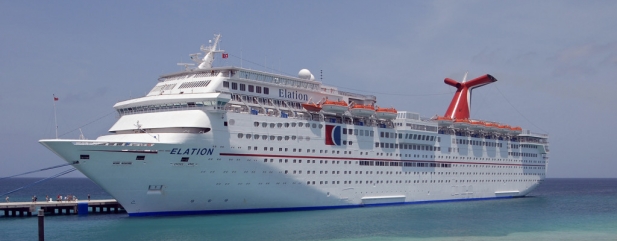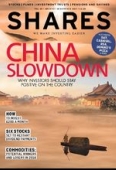Archived article
Please note that tax, investment, pension and ISA rules can change and the information and any views contained in this article may now be inaccurate.
We don’t believe Carnival is sailing into troubled waters

Cruise operator Carnival (CCL) is a resilient company which is suffering temporary setbacks from events out of its control. We believe that 2018 is set to put the cruise liner on a stronger footing as earnings are forecast to show a considerable improvement on 2017’s anticipated numbers. Buy at £50.33.
Shares in Carnival currently trade on 15.8 times forecast earnings for 2018. That looks too low for a company of Carnival’s size, track record and brand strength.
Berenberg analyst Stuart Gordon says the market is being cautious due to the weak year that Carnival experienced following hurricanes Katrina and Wilma in 2005, assuming the same trend will happen following 2017’s hurricanes.
We don’t think this year’s hurricanes were severe enough to deter large numbers of people from wanting to holiday at sea.
While new bookings have been slower in September, UBS analyst Robin Farley says cancellations are only at 1% and its fourth quarter is well booked.
We believe the market will soon shift its attention to next year’s earnings. Net profit is forecast to fall to $2.59bn in 2017 versus $2.78bn a year earlier, according to investment bank Berenberg. However, net profit is then forecast to jump to $3.15bn in 2018.
What does carnival do?
Carnival is the largest cruise company in the world and carries 48% of global cruise guests to locations such as the Caribbean, Mexico, Europe, Hawaii and Australia.
The business owns a range of brands including P&O Cruises and Cunard.
Boost in passengers
Farley at UBS is impressed by the cruise operator’s net yield, which in this context means total sales per available passenger cruise days excluding commissions, transportation and other expenses.
Farley argues net yield is very important because the industry’s costs are almost entirely fixed. Or, in other words, the cost of running a cruise ship is not that different if it is carrying 500 or 1,000 passengers. Yield increases can therefore be achieved with ‘very little incremental on-board expense’.
In the three months to 31 August 2017, Carnival’s net revenue yield of 5.1% beat guidance of 4%. The company also hiked the yield outlook for 2017 to 4%, up from guidance of approximately 3.5% in June.
The company says customers were drawn in by ‘price improvements’ in its Caribbean, European and Alaska operations.
Bookings for the first half of 2018 are well ahead on price, occupancy and volumes. This is impressive according to Farley considering that supply is higher for the industry next year. (LMJ)
Important information:
These articles are provided by Shares magazine which is published by AJ Bell Media, a part of AJ Bell. Shares is not written by AJ Bell.
Shares is provided for your general information and use and is not a personal recommendation to invest. It is not intended to be relied upon by you in making or not making any investment decisions. The investments referred to in these articles will not be suitable for all investors. If in doubt please seek appropriate independent financial advice.
Investors acting on the information in these articles do so at their own risk and AJ Bell Media and its staff do not accept liability for losses suffered by investors as a result of their investment decisions.

 magazine
magazine











